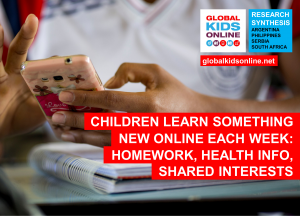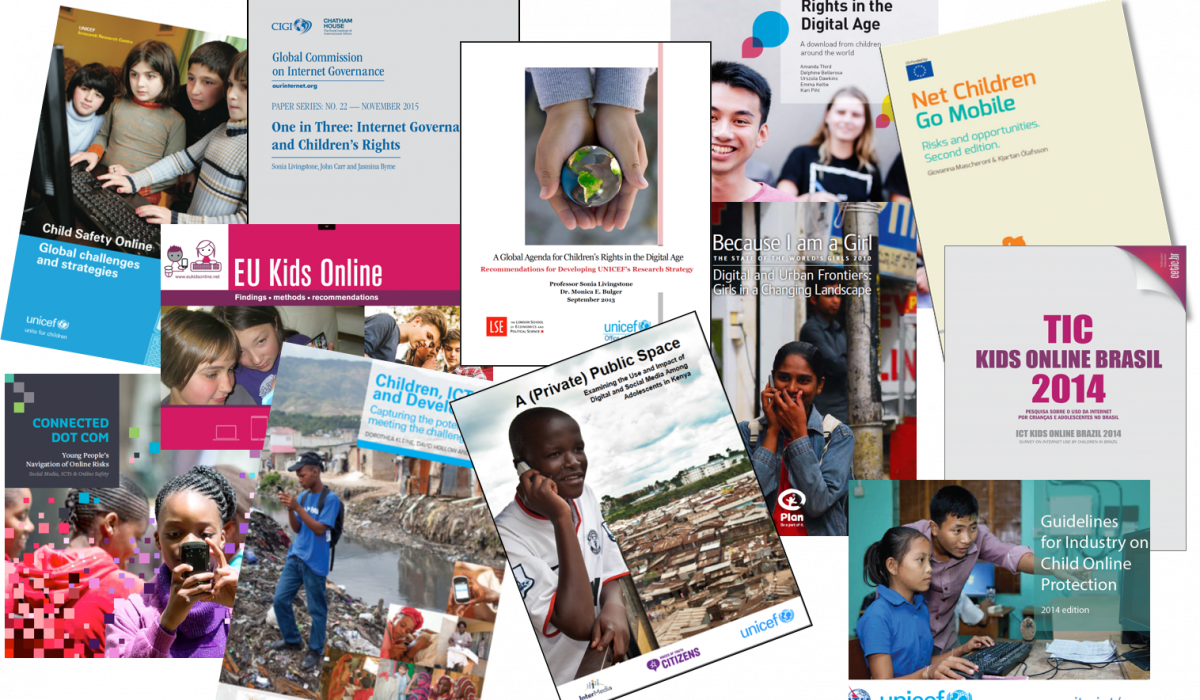 The work of Global Kids Online is founded on the belief that it is vital to generate and sustain a rigorous cross-national evidence base around children’s use of the internet. This is needed to understand whether and how children’s rights are being enhanced or undermined in the digital age, and so to inform policy-makers and stakeholders nationally and internationally when creating a better internet for children. Until recently, the evidence base has been largely concentrated in high-income countries. While it may be tempting to generalise what we know from the North to the South, this is inappropriate given that the step-change in where children go online raises new questions about how they go online and with what consequences. Indeed, it may even be argued that the meaning of internet use is itself changing as its users and contexts of use change – increasingly mobile, commercialised, taken-for-granted.
The work of Global Kids Online is founded on the belief that it is vital to generate and sustain a rigorous cross-national evidence base around children’s use of the internet. This is needed to understand whether and how children’s rights are being enhanced or undermined in the digital age, and so to inform policy-makers and stakeholders nationally and internationally when creating a better internet for children. Until recently, the evidence base has been largely concentrated in high-income countries. While it may be tempting to generalise what we know from the North to the South, this is inappropriate given that the step-change in where children go online raises new questions about how they go online and with what consequences. Indeed, it may even be argued that the meaning of internet use is itself changing as its users and contexts of use change – increasingly mobile, commercialised, taken-for-granted.
Addressing these challenges, Jasmina Byrne and Daniel Kardefelt-Winther discussed how Global Kids Online has approached the generation of rigorous cross-national evidence on children’s online access risks, opportunities and rights, especially in countries where the massive expansion of the internet is relatively new. They highlighted the potential of using comparative findings across countries to support evidence-based policy and practice.
You can watch the conversation on the Facebook page of UNICEF Office of Research – Innocenti and can follow us on Twitter: #GlobalKidsOnline, @UNICEFInnocenti, @LSEnews and @ MediaLSE.
We recently discussed these theoretical and methodological challenges posed by the research in an article entitled Global Kids Online: Researching children’s rights globally in the digital age (Global Studies of Childhood, Vol 6(4): 455 – 466). Arguing in favour of critically rethinking existing research frameworks and measures for new circumstances, in this article we report on the experience of designing the Global Kids Online research toolkit and piloting it in four countries on four continents. We propose this framework in response to current developments in internet governance relating to children’s rights which tend to separate the protection, provision and participation aspects of children’s online experiences and focus mainly on protectionism.
The research approach and framework of Global Kids Online are discussed in detail in the method guide by Prof Sonia Livingstone: A framework for researching Global Kids Online: understanding children’s well-being and rights in the digital age. Available from: www.globalkidsonline.net/framework
Further resources
Global Kids Online research toolkit
How to Join Global Kids Online
You can sign up to receive the latest research news from Global Kids Online by email. Please forward this message to anyone you think may be interested.
Post author: Mariya Stoilova








